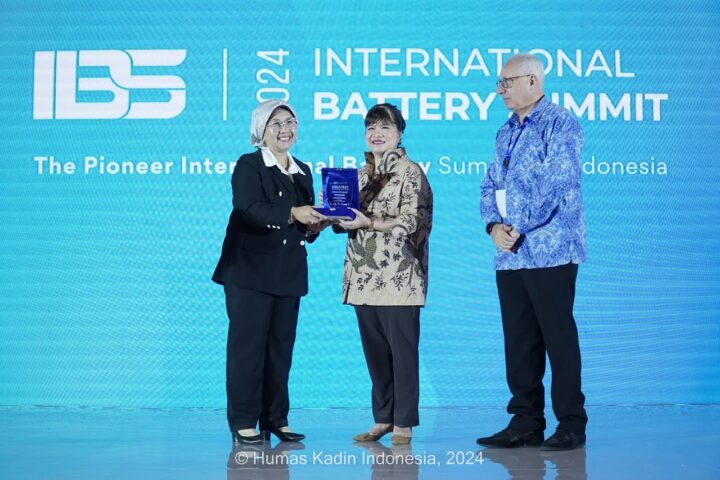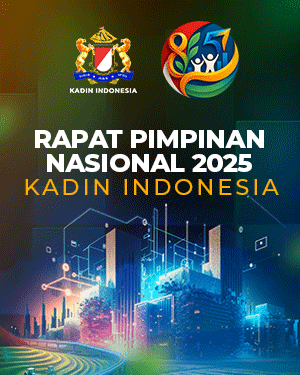
The surge in battery demand by 70% by 2023 is both a challenge and an opportunity for Indonesia. The development of the battery industry in Indonesia needs to consider its impact on the environment. This was conveyed by the Deputy Chairperson for Maritime, Investment and Foreign Affairs of the Indonesian Chamber of Commerce and Industry (Kadin), Shinta W. Kamdani at the ‘International Battery Summit’, Monday (29/7).
According to her, the management of battery raw materials must pay attention to circulation in the processing industry, maximise efficiency, and reduce environmental damage. Battery processing that must consider environmental conditions is one of the efforts to maintain public health and welfare.
‘The domestic battery industry is very important to attract investment by showing the existence of the Indonesian battery ecosystem from production to recycling,’ said Shinta.
All parties, continued Shinta, must be able to collaborate to create an ideal electric vehicle ecosystem to capture opportunities in the electric vehicle industry, especially batteries. The collaboration is good with the government, private sector, and academics in developing the battery industry in Indonesia. This collaboration is important to develop innovation, sustainable infrastructure development and encourage an environment for sustainable technology development.
‘Our efforts are linked to the country's goal of achieving net zero emissions by 2060 through energy transition and the development of a comprehensive EV ecosystem, including batteries,’ said Shinta.
Special Staff of the Minister of Energy and Mineral Resources for the Acceleration of Industrial Development in the Energy and Mineral Resources Sector Agus Tjahajana Wirakusumah said Indonesia could produce nickel-based battery materials with a capacity of 1,143 gigawatt hours (GWh).
‘If all battery companies (factories) are operational, Indonesia will be able to play a leading role in producing 1,143 GWh of nickel-based battery materials,’ Agus said.
Agus also estimated that world battery demand will reach 5,300 GWh in 2025, dominated by demand for four-wheeled electric vehicles, followed by two-wheeled electric vehicles, buses, battery energy storage systems, and various electronics.
‘Demand for nickel-based batteries is projected to continue to increase by 40-50 per cent until 2035,’ he said.

National Economy
Regional Economy
National Economy
Regional Economy